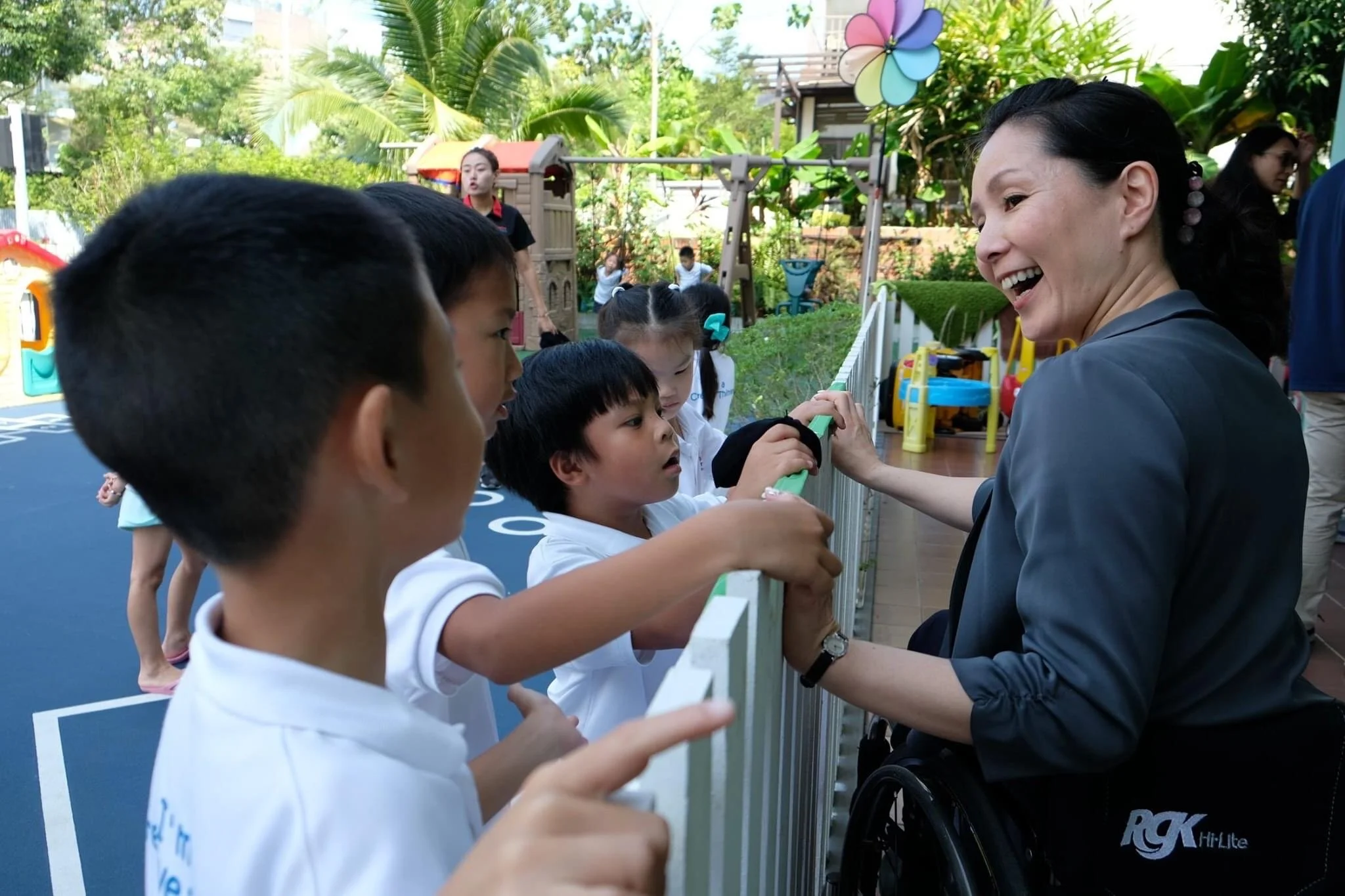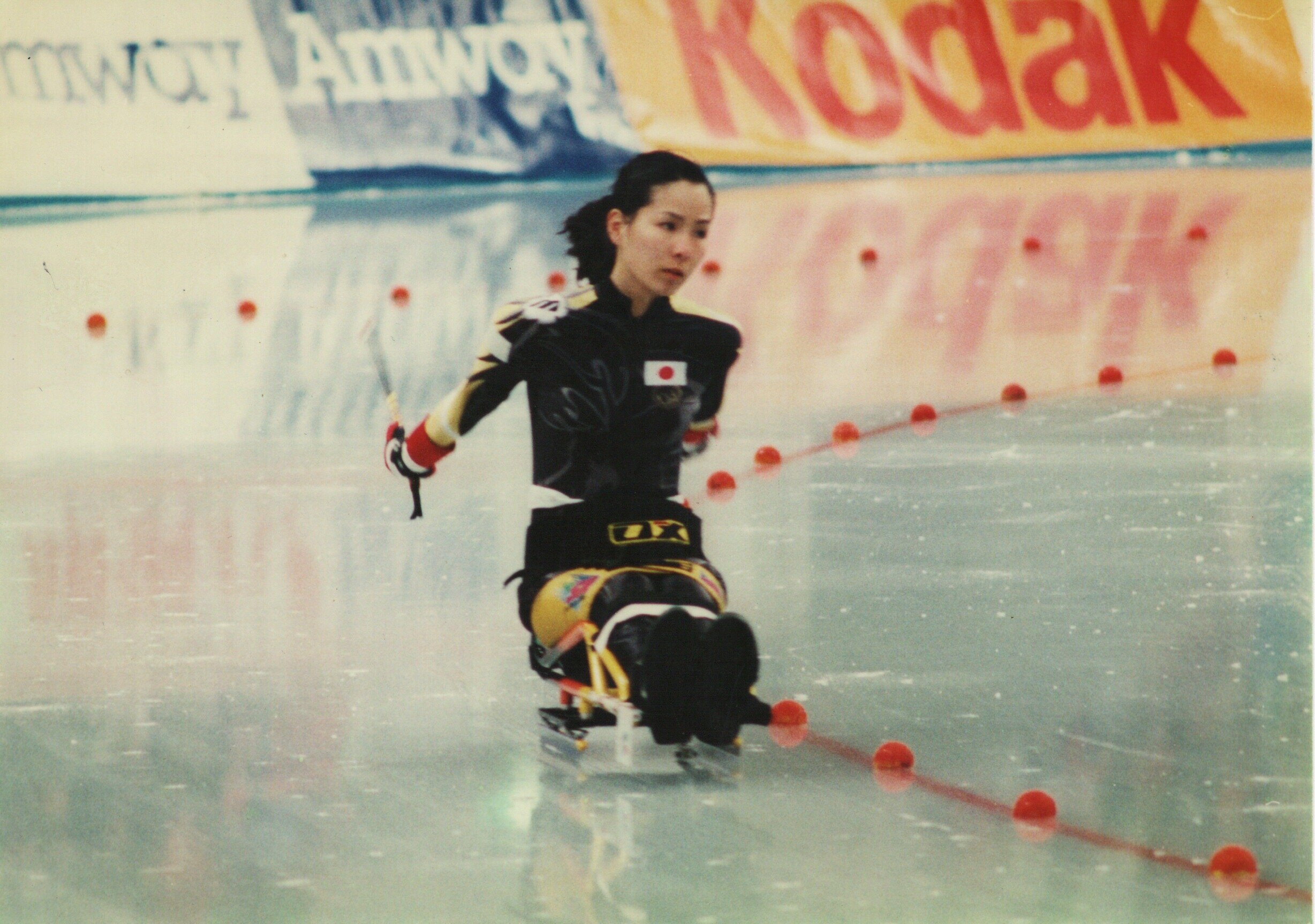For these Paralympians, equality in sports begins in the classroom
(Courtesy of Agitos Foundation)
Miki Matheson and Mohadeseh Kohansal discuss their work with I’mPOSSIBLE, a global education programme that’s teaching students inclusion through the Paralympic values.
“The most shocking thing after the accident was when I realized how differently society viewed and treated persons with disabilities,” says Miki Matheson, who became a wheelchair user at age 20 after a car accident. “I didn’t just lose my ability to walk, many other things disappeared from my life. Lots of experiences, opportunities and dignity were taken away from me.”
Miki originally assumed that sport would be one of the things that disappeared from her life, but then she discovered the Paralympic movement. She took up ice sledge speed racing, a former Paralympic sport similar to speed skating. At the 1998 Nagano Winter Paralympic Games, Miki won three gold medals for her home country of Japan. But she wanted to do more to help other people with disabilities.
“No one in the world should face discrimination just because they are different,” Miki shares. “I don’t want anyone, especially young children, to lose their hopes, dreams and self-confidence just because they are different or have different needs.”
Recognising that “sports have the unique ability to attract and inspire people,” Miki continued her work with the Paralympic movement, speaking about inclusion at the United Nations on several occasions. Since 2016, she has worked to develop I’mPOSSIBLE, the official global education programme of the International Paralympic Committee (IPC).
“I’mPOSSIBLE aims to challenge and change the perceptions and attitudes of how young people perceive people with a disability,” explains Miki. Through toolkits and lesson plans, I’mPOSSIBLE equips educators with resources to teach their students inclusion through the Paralympic values and highlight the accomplishments of para-athletes around the world. Thirty-six countries have already signed an agreement to implement the programme.
“Many teachers are not familiar with the Paralympic movement or what inclusion means to their classroom prior to the training, however, after the sessions, I hear many teachers feel confident and ready to make changes in their schools,” shares Miki. “Some teachers are elevating the self-esteem of their students and spotting future Paralympians. Some teachers are turning their classrooms into an important stage for tackling social stigma towards people with a disability through I’mPOSSIBLE. Some teachers are continuing to cultivate inclusive mindsets after the I’mPOSSIBLE lessons and raising responsible young citizens.”
One of the goals of the I’mPOSSIBLE programme is to introduce students to the stories of Paralympians around the world, like Iranian archer Mohadeseh Kohansal who competed in the 2016 Paralympics at age 17. Mohadeseh credits sports with giving her confidence and she hopes to help instill the same in other young women through the I’mPOSSIBLE programme. “Those with sport experience know what I mean when I say sport constantly boosts self-confidence and fills people with happiness and satisfaction,” she shares.
Mohadeseh wants to see a change in the way society views people with disabilities. “Making the right notion and changing the attitude of the people towards disability is one of the most important things I expect authorities and parents to take steps towards,” she says. Mohadeseh is hopeful that I’mPOSSIBLE will be an important tool in making this happen. “First of all, it is very exciting for me to see that I’mPOSSIBLE has targeted able-bodied students so that they can come to a clear understanding of impairment and accept students with a disability in society,” she shares. “Further to that, I found it attractive that able-bodied students get familiar with the courage and abilities of students with disabilities.”
Although I’mPOSSIBLE is still in its early stages, Miki and Mohadeseh believe in the potential of the programme to create systemic change. “I have witnessed that the combination of sports and education is the most powerful, effective and transformative tool to change society,” Miki says. “Paralympic education will be a long-lasting legacy after the [Tokyo] Games. It will be great to see how I’mPOSSIBLE kids will change our next generation.”
 Read more
Read more












